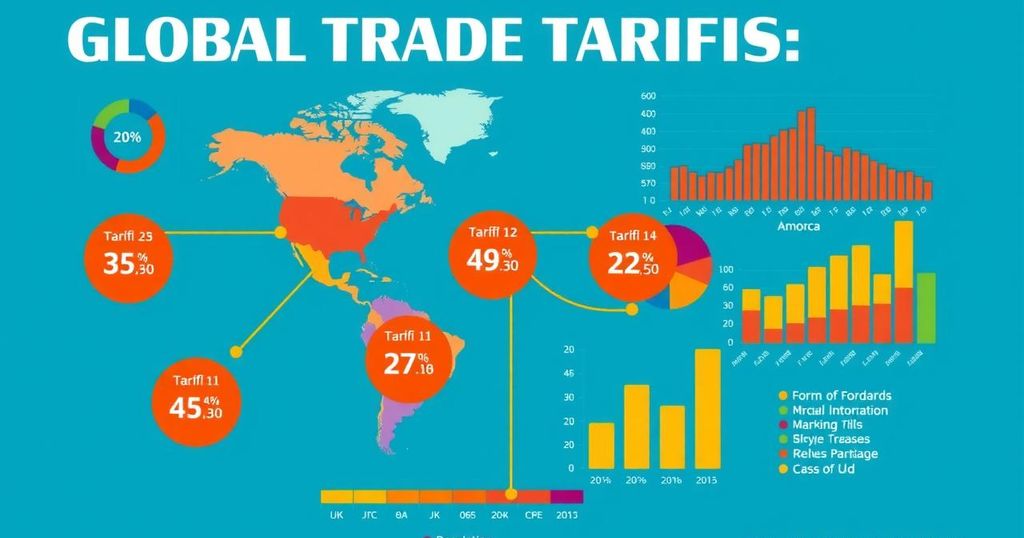Germans will vote in a federal election on February 23, after the collapse of Chancellor Scholz’s government. The far-right AfD shows significant gains in state elections, notably in Thuringia and Brandenburg. Current polls have them in second place behind the CDU, escalating concerns about governance and security in the upcoming election.
Germany is preparing for a pivotal federal election set for February 23, following the disintegration of Chancellor Olaf Scholz’s coalition government in November. Recent state elections demonstrated the significant advancement of the far-right party, the Alternative for Germany (AfD), which achieved remarkable success, particularly in Thuringia and narrowly contested in Brandenburg.
Current poll results indicate the intensifying competition, notably with the AfD now polling in a strong second place. The political landscape is shifting, with traditional parties grappling to maintain their influence in the wake of recent events. This upcoming election is critical as it not only reflects public sentiment but also addresses pressing security concerns exacerbated by recent incidents.
Key political players are keenly observing these developments, with parties like the Christlich Demokratische Union Deutschlands (CDU/CSU) leading with a significant 30% of seats in state elections. The AfD follows closely behind with approximately 15.9%, showcasing its growing presence in the German political arena. Other parties, including the Social Democrats (SPD) and the Green Party, demonstrate varied levels of support and will be crucial in shaping future coalitions.
The implication of statements from influential figures, including tech billionaire Elon Musk criticizing Chancellor Scholz, underscores the heightened scrutiny surrounding government capabilities in ensuring public safety. The landscape is increasingly polarized, as seen in remarks emphasizing the AfD as a potential savior for Germany.
With the election looming, there is a heightened sense of urgency to address voter concerns regarding security and governance. This election will likely set the course for Germany’s future political stability and responses to both domestic and foreign challenges.
The backdrop of the upcoming federal election is marked by the collapse of Chancellor Olaf Scholz’s government, prompting significant shifts within German politics. The rise of the Alternative for Germany (AfD) has garnered attention and potential concern among traditional parties, indicating a change in voter priorities and political alignments. This context underscores the importance of assessing public sentiment as Germany prepares to head to the polls. The growing support for the AfD and other parties reflects a broader dissatisfaction with existing governance structures, particularly in light of recent crises affecting public safety. These dynamics illustrate how critical the February election will be in determining the future direction of Germany’s political landscape.
The forthcoming federal election in Germany is poised to reshape its political environment in the wake of significant governmental changes. The growing support for the AfD presents challenges to established parties, highlighting shifting public priorities particularly surrounding issues of governance and security. As voters prepare to cast their ballots, the implications of this election extend beyond immediate results, potentially influencing the trajectory of German politics for years to come.
Original Source: www.politico.eu




